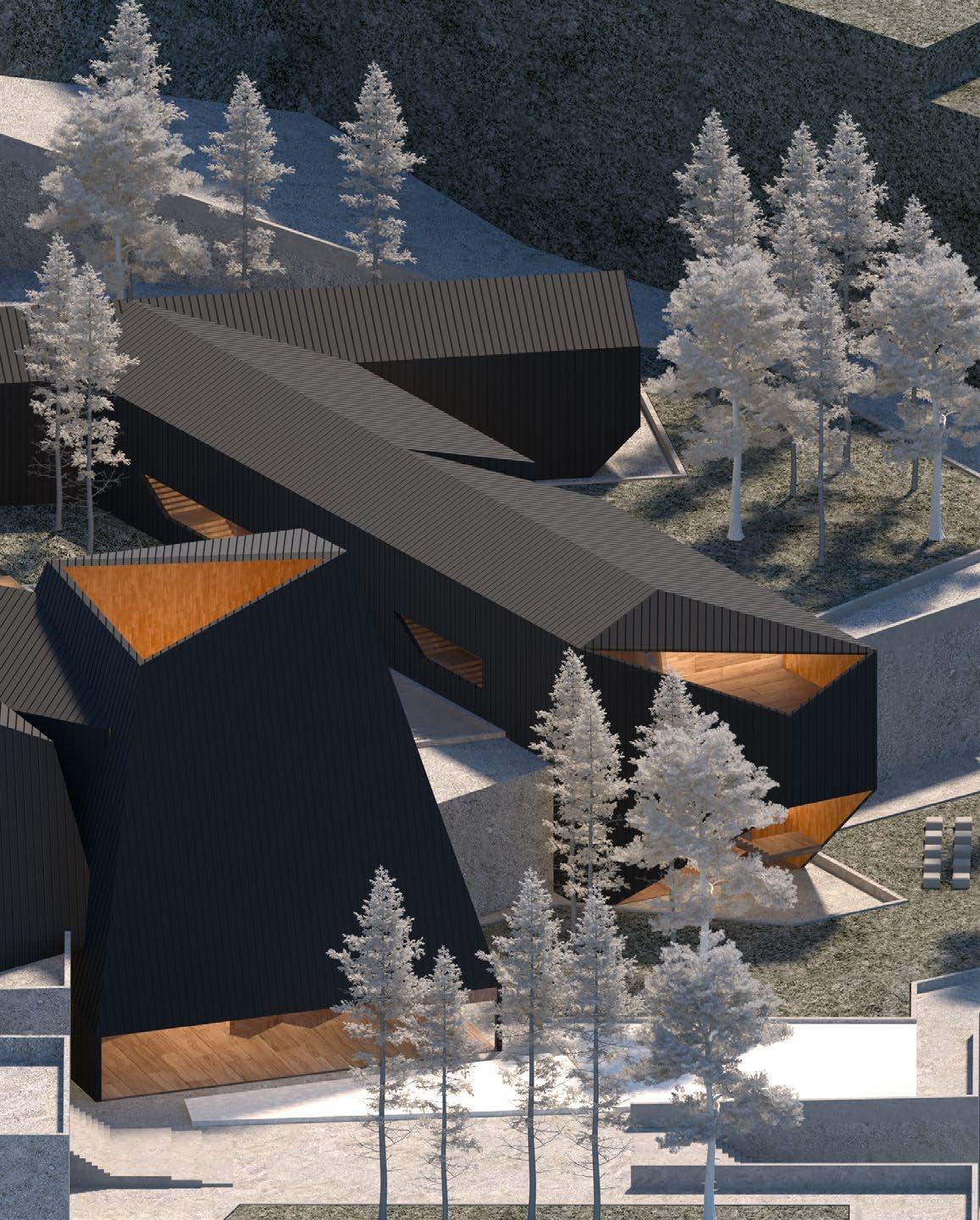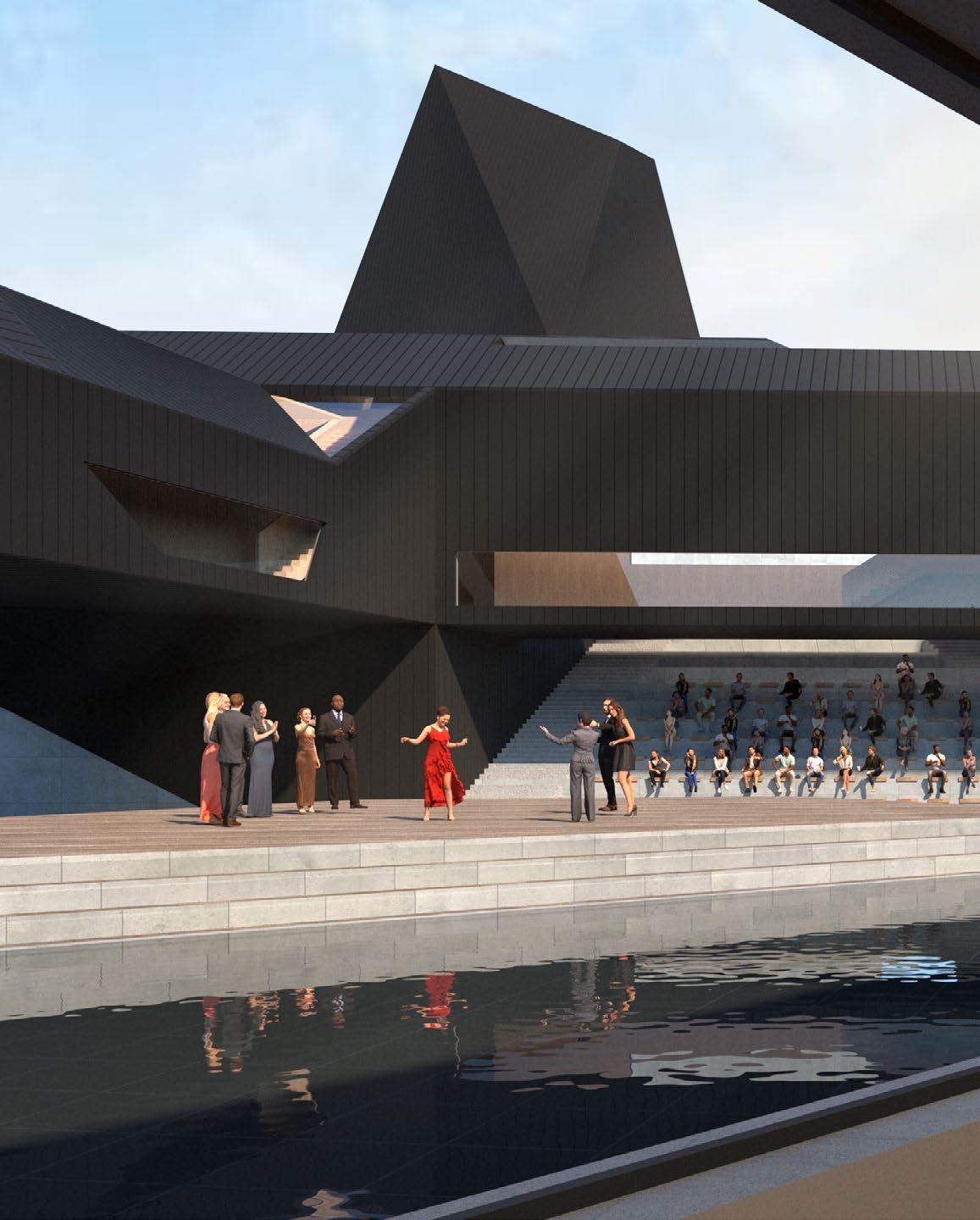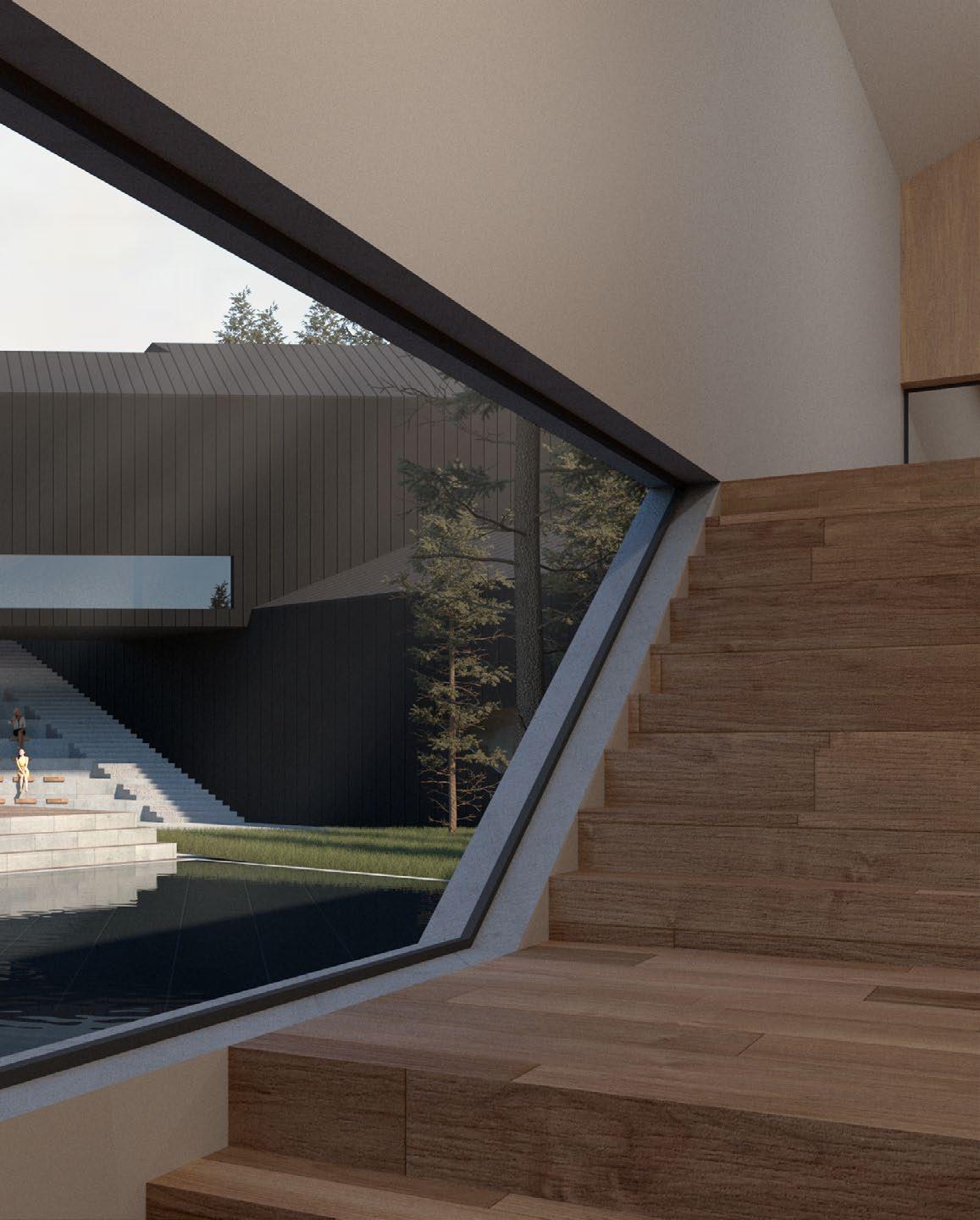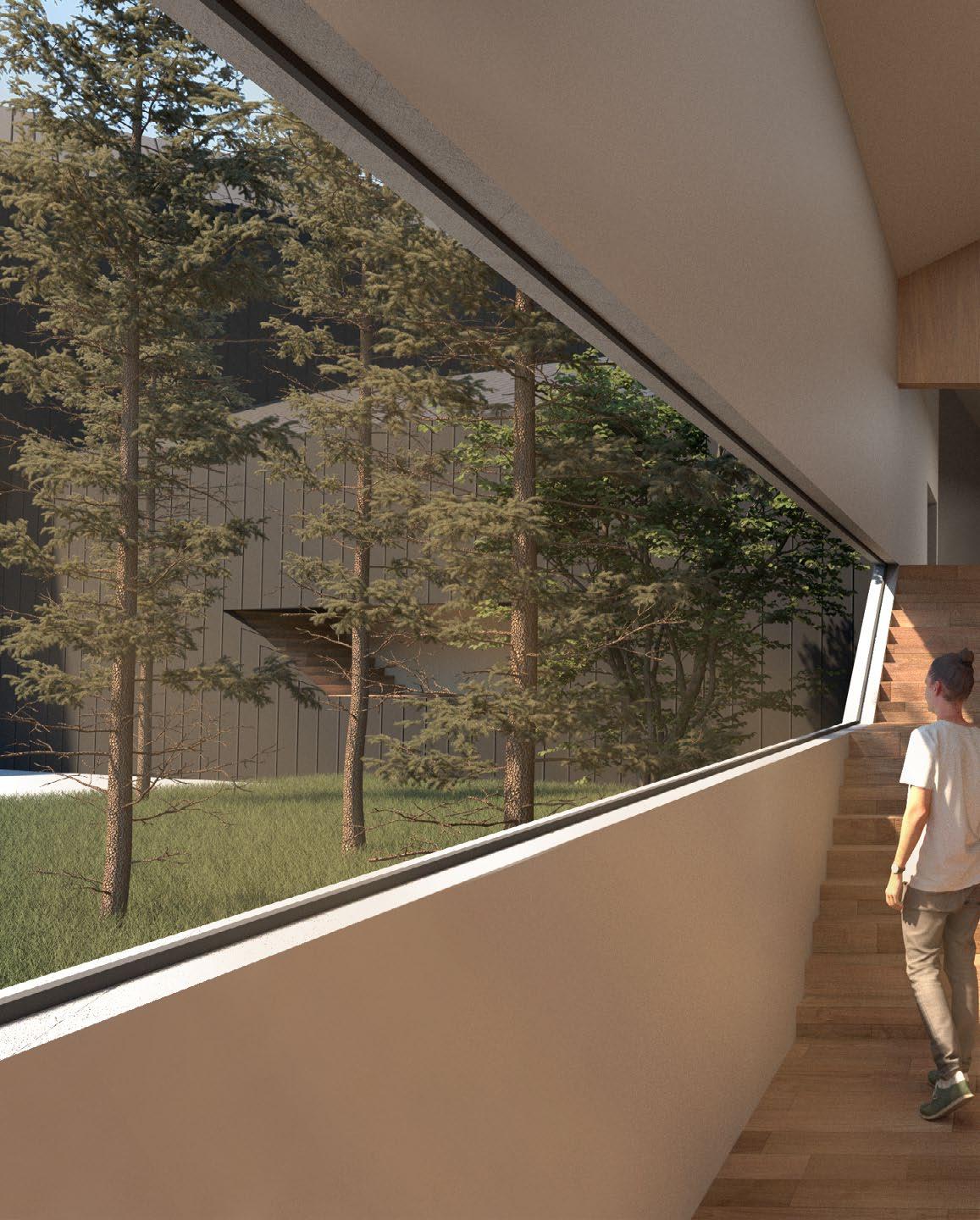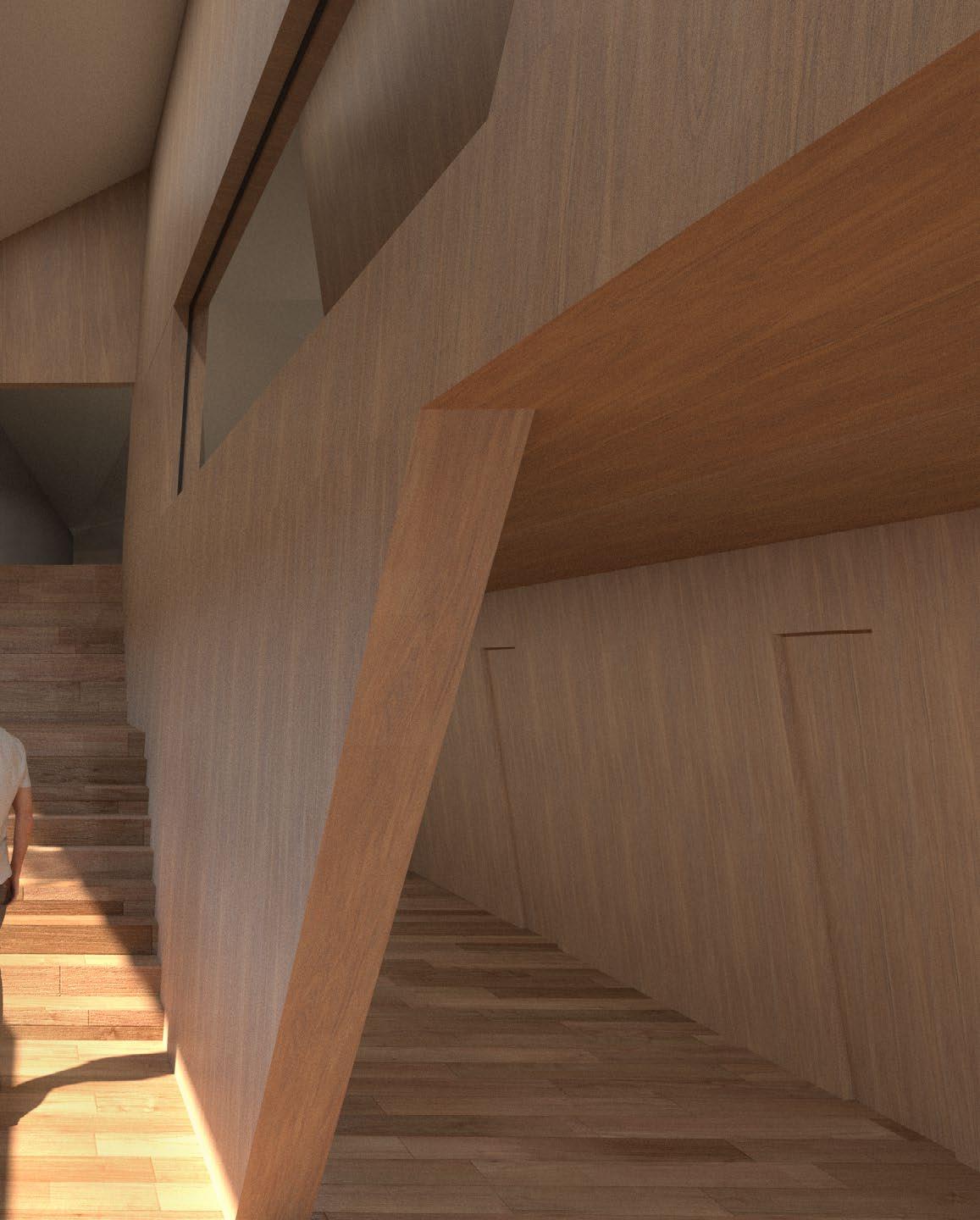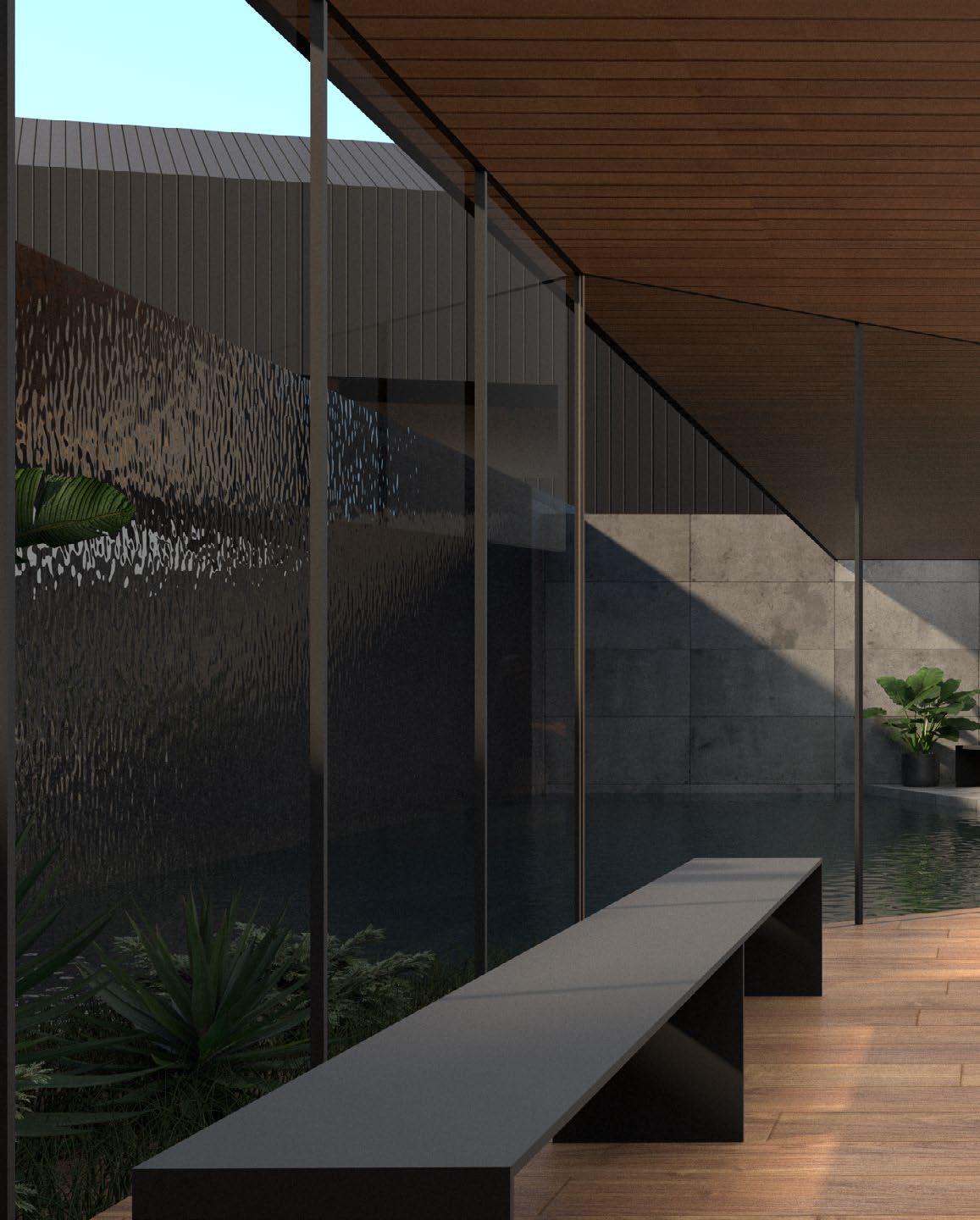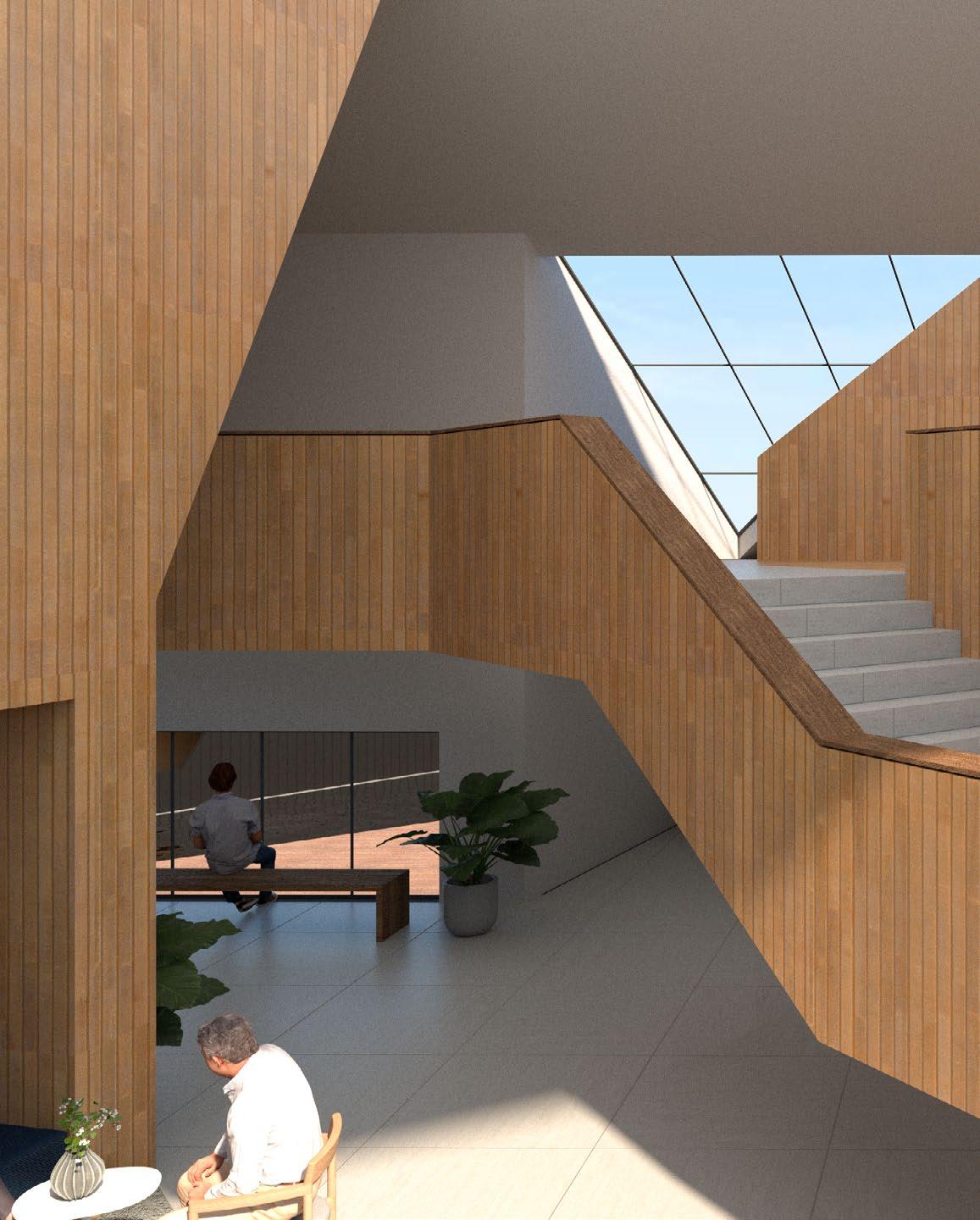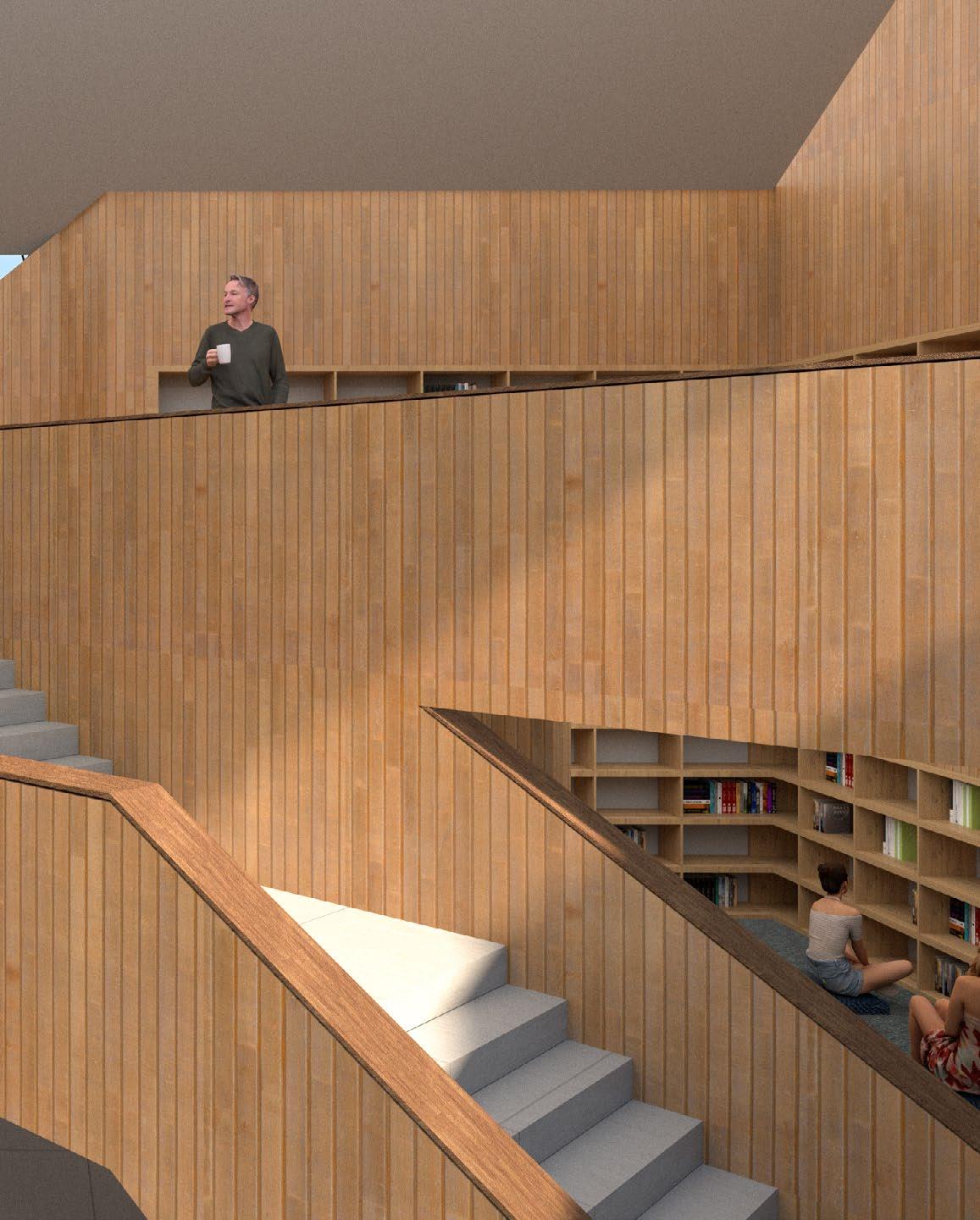CASCADING COMMUNITIES
Architecture for Mental Health Rehabilitation
Graduate Thesis 2023 LEXIN LIU + ZHAO MU

Graduate Thesis 2023 LEXIN LIU + ZHAO MU
Traditional mental health facility designs have historically faced challenges such as institutionalization, overcrowding, limited privacy, and inadequate natural elements. These issues perpetuated stigma, hindered recovery, and compromised patient wellbeing. To address these problems and create a new era of mental health architecture, a patient-centered approach should be adopted. Cascading Community emphasizes creating welcoming and flexible spaces that prioritize therapeutic environments, community integration, and access to nature. Diverse healing environments, thoughtful use of materials, and modern technology can contribute to a more effective and compassionate environment for mental health treatment and recovery.
Cascading Community's innovative approach encompasses four distinct therapy methods across its platforms: larger group therapy, small group therapy, family therapy, and selfcare and burnout prevention. Larger group therapy facilitates communal support for addiction recovery, exposure therapy for social anxiety, grief processing, coping strategies
for eating disorders, and trauma survivors' connections. Conversely, small group therapy offers tailored exposure therapy, interpersonal skill development for personality disorders, anger management, OCD support, and body image discussions. Family therapy adopts a systems perspective, holistic approach, and addresses communication, roles, and boundaries for diverse issues. Finally, selfcare and burnout prevention promote physical, emotional, mental, and social well-being through strategies including boundary-setting, self-compassion, stress management, breaks, gratitude, and seeking support. Flexibility in group sizes and tailored therapy sessions are crucial for optimal outcomes.
Platform one, known as the 'Cloister', embodies unity and communal healing. This space facilitates profound connections through extensive group therapy sessions, where individuals openly share their experiences, struggles, and progress, nurturing the ties that unite them on their path to mental well-being. Architecturally, the Cloister boasts two inviting communal spaces for emotional release, and shared understanding. Surrounded by a green
environment, residents find solace in nature, contributing to their rejuvenation and wellbeing.
Platform two, the 'Pocket Plazas,' offers a space for intimate support and personal growth. Small groups engage in guided sessions led by empathetic mental health professionals, exploring shared experiences and learning coping strategies. Architecturally, it includes smaller residential clusters and various communal areas designed to encourage meaningful interactions and introspection.
Platform Three, known as the 'Multifamily Court,' embodies family healing. Tailored for impactful family therapy, it encourages active family involvement in their loved ones' recovery. The familial house units provide a place for solace and connection, fostering communication, conflict resolution, and growth. Architecturally, the Multifamily Court seamlessly integrates family bonds. Its design features neutral, inviting materials and adaptable arrangements for face-to-face interaction. The spaces maximize natural light, consider acoustics, and prioritize safety and accessibility. Calming elements further cultivate a serene atmosphere.
Platform four, the 'Retreat,' is designed for individual therapy, providing a serene space for transformative one-on-one sessions with mental health professionals. The architecture promotes introspection, complemented by ample natural light, comfortable furniture, and personal greenery. Privacy, flexibility, and nature integration encourage relaxation and mindfulness. Ergonomic seating, technologyfree zones, and dimmable lighting support
well-being. These spatial elements foster selfcare, helping individuals prioritize emotional health and find solace.
In conclusion, Cascading Community presents an innovative approach to mental health architecture, addressing past challenges and embracing patient-centered care. By prioritizing therapeutic spaces, community integration, and nature, this model seeks to destigmatize treatment and enhance well-being. Its diverse therapy methods are seamlessly applied into thoughtfully designed spaces that promote healing and growth. This architectural complex signifies a future where mental health spaces are functional and nurturing, empowering individuals on their paths to wellness.

